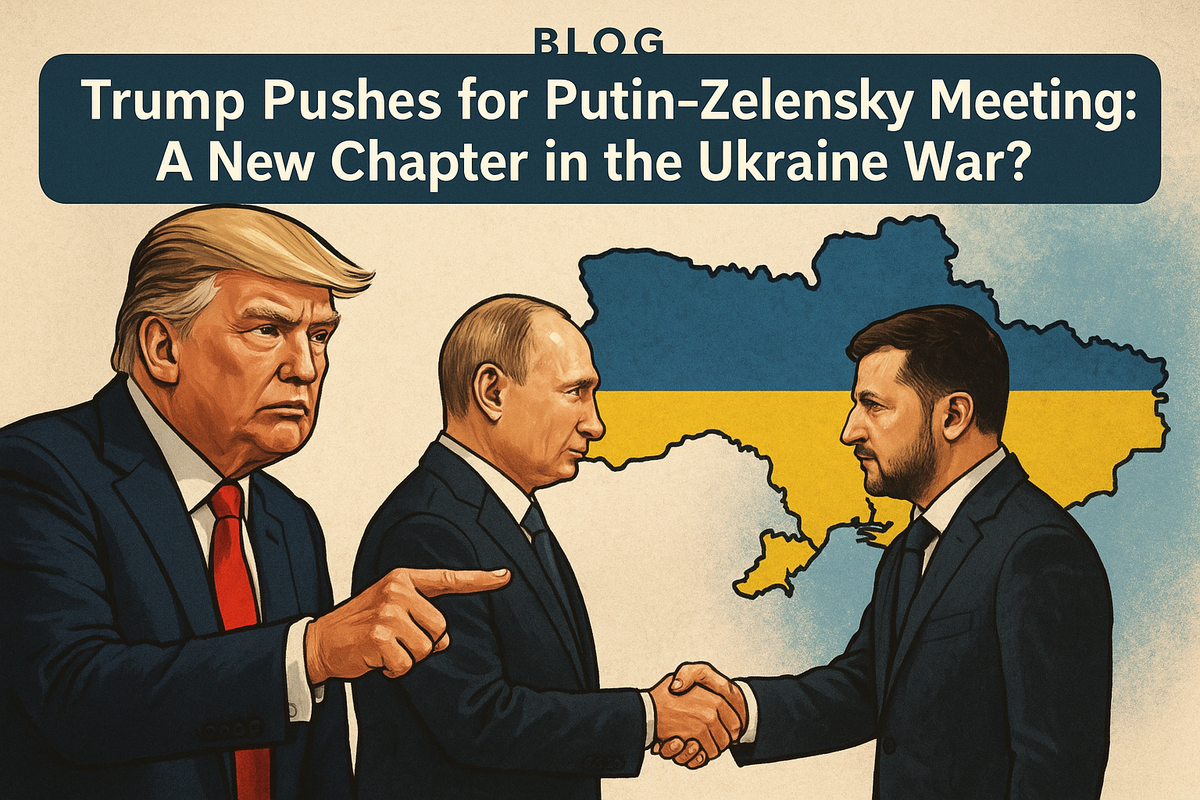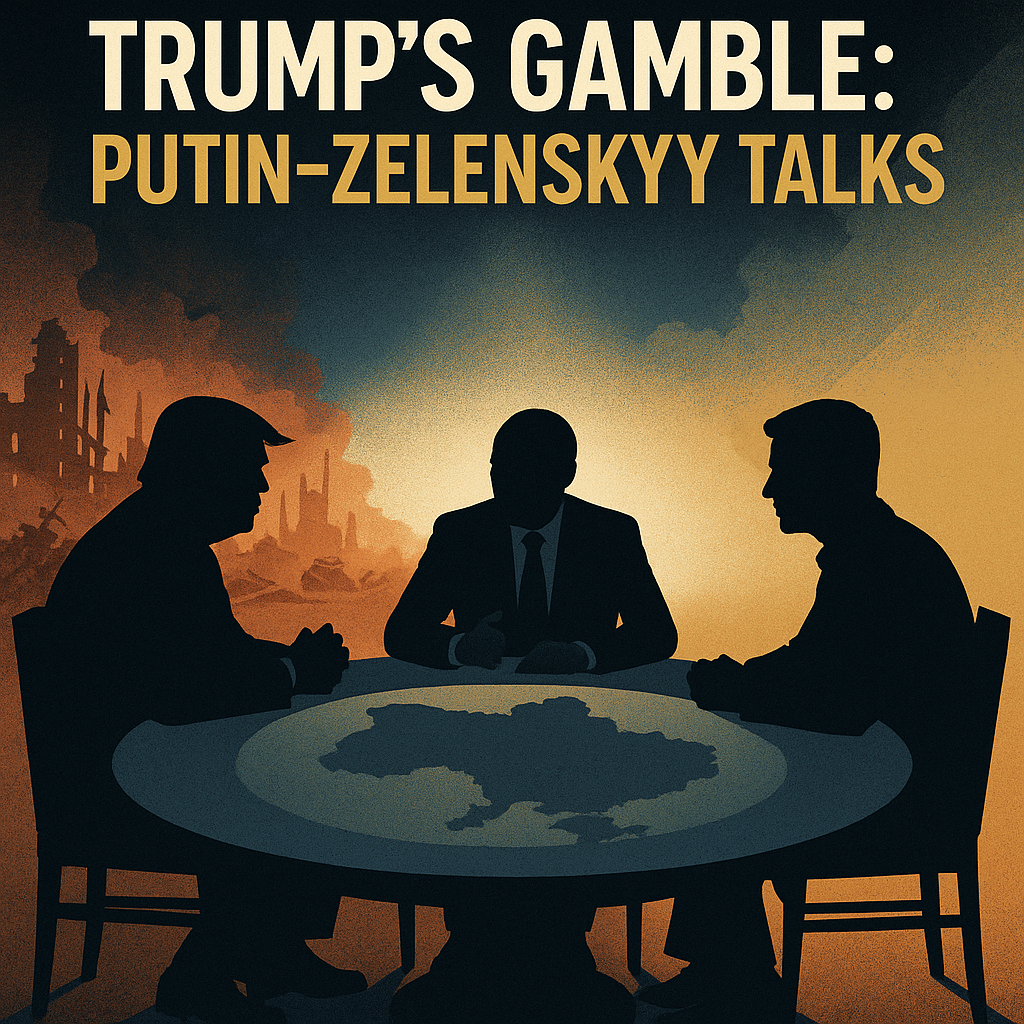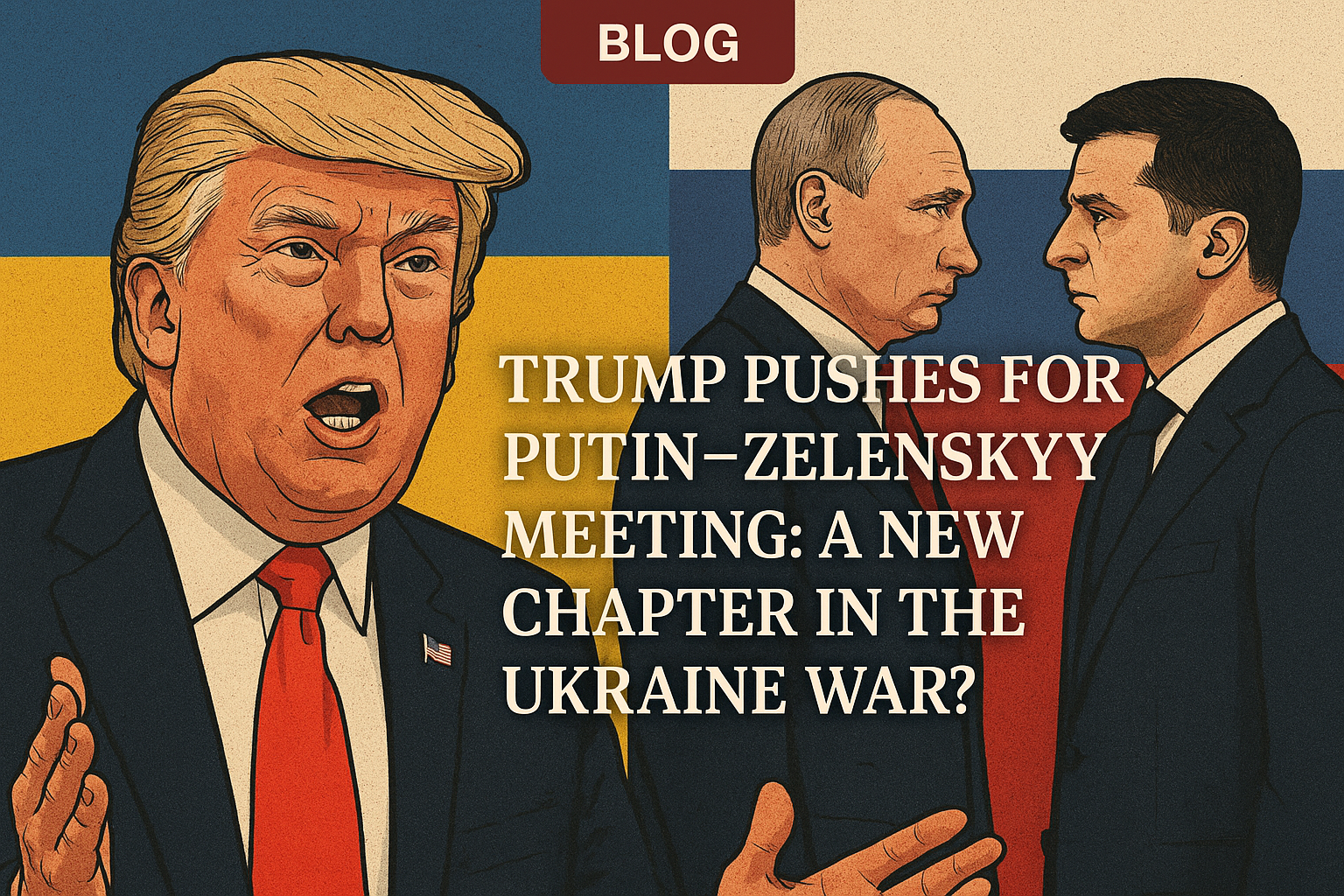The Summit That Could Change Everything: Trump, Putin, and Zelenskyy
The prospect of such a meeting immediately raises questions: Can Trump succeed where others have failed? Is this a genuine step toward peace, or a geopolitical gamble? - Rafael Benavente

By Rafael Benavente
Trump Pushes for Putin–Zelenskyy Meeting: A New Chapter in the Ukraine War?
Introduction
Former U.S. President Donald Trump has revealed that he has “begun arrangements” to facilitate a face-to-face meeting between Russian President Vladimir Putin and Ukrainian President Volodymyr Zelenskyy. The announcement, made in mid-August 2025, marks one of the most high-profile attempts at direct diplomacy since the war in Ukraine began in 2022.
The prospect of such a meeting immediately raises questions: Can Trump succeed where others have failed? Is this a genuine step toward peace, or a geopolitical gamble?
1. The Context: A War at Stalemate
After more than three years of conflict, the war in Ukraine has settled into a grinding stalemate:
- Ukraine has leaned heavily on U.S. and European aid to sustain its defenses.
- Russia maintains territorial control in eastern Ukraine, with ongoing offensives in Donetsk and Luhansk.
- Global fatigue is growing, with Western governments divided over funding and military commitments.
Efforts at mediation—by Turkey, China, and others—have produced little more than temporary ceasefire talks.
Against this backdrop, Trump’s announcement signals an attempt to reposition the U.S. as the central broker of negotiations.
2. Trump’s Diplomatic Gambit
Trump’s claim that he has initiated arrangements for direct talks comes amid his 2024 election comeback and 2025 political agenda. For Trump, brokering a face-to-face summit would:
- Reinforce his image as a deal-maker on the global stage.
- Distinguish his approach from President Biden’s, which has centered on supporting Ukraine militarily.
- Underscore his longstanding argument that the war would not have escalated under his leadership.
If successful, a Trump-facilitated Putin–Zelenskyy summit could mark a historic diplomatic breakthrough.
3. Risks and Challenges
While the idea is bold, the obstacles are enormous:
- Distrust: Zelenskyy has repeatedly said Ukraine will not concede territory, while Putin has made annexations a cornerstone of his strategy.
- Political optics: Any concession by Zelenskyy could be framed as betrayal domestically, while Putin risks appearing weakened if he entertains compromise.
- Global skepticism: Allies in Europe may question whether Trump is prioritizing U.S. strategic interests or personal political gains.
This sets the stage for a meeting that could just as easily collapse—or become a global turning point.

4. Geopolitical Implications
If a summit materializes, the stakes will ripple far beyond Kyiv and Moscow:
- For Ukraine: Could represent its best chance to secure guarantees on sovereignty, but risks losing leverage if support from the West wanes.
- For Russia: A meeting allows Putin to appear open to negotiation, even while consolidating gains.
- For the U.S.: Would signal a dramatic shift in its diplomatic role—from arms provider to peace broker.
- For Europe: May accelerate debates over whether to continue financing Ukraine’s war effort.
5. Trump’s Calculus
Trump has always emphasized direct leader-to-leader negotiations, often bypassing traditional diplomatic channels. His overtures to North Korea’s Kim Jong-un serve as precedent—highly publicized, if not always fruitful.
In this case, Trump may see a Putin–Zelenskyy summit as:
- A way to validate his claim that he can “end the war in 24 hours.”
- An opportunity to put his stamp on global diplomacy early in his second presidential term.
- A means to consolidate domestic political support by showcasing “peace through strength.”
| Year | Date / Period | Event / Development |
|---|---|---|
| 2022 | Feb–Mar | Early war talks in Belarus and Turkey. Ceasefire and humanitarian corridor agreements attempted, but failed to stop fighting. |
| Apr | Istanbul talks show promise; Russia signals willingness to reduce attacks near Kyiv. Talks collapse after revelations of atrocities in Bucha. | |
| Dec | U.S. President Biden rules out direct peace talks without Ukraine’s lead; Zelenskyy presents “10-Point Peace Plan” at G20. | |
| 2023 | Jan–Jun | China floats a 12-point peace proposal, but Western leaders dismiss it as pro-Russian. |
| Jul | Saudi Arabia hosts a peace summit in Jeddah with 40+ countries, including the U.S. and China—but without Russia. No binding deal reached. | |
| Dec | EU renews sanctions on Russia; diplomatic isolation hardens. | |
| 2024 | Feb | Second anniversary of the war—Putin declares annexations “non-negotiable.” |
| Spring | Turkey again attempts mediation, but both sides reject concessions. | |
| Nov | U.S. elections—Trump elected, promising to “end the war in 24 hours.” | |
| 2025 | Jan | Trump sworn in; hints at “new approach” to Ukraine. |
| Mar–Jun | Zelenskyy presses for continued U.S. military aid amid wavering support in Congress. | |
| Aug | Trump announces he has “begun arrangements” for a direct face-to-face meeting between Putin and Zelenskyy—the first such attempt since 2022. |
6. Possible Outcomes
- Breakthrough: A roadmap for ceasefire or territorial negotiations—unlikely, but historic.
- Stalemate optics: Talks collapse, but both sides gain political cover for prolonging the fight.
- Strategic trap: Ukraine pressured into concessions, damaging Western alliances and emboldening Russia.
- Symbolic win for Trump: Even failed talks may bolster his image as the only leader capable of bringing adversaries together.

Conclusion
Trump’s announcement of “arrangements” for a Putin–Zelenskyy meeting introduces a new twist in the Ukraine war narrative. While success is far from guaranteed, the attempt reflects both the urgency of ending the war and Trump’s desire to reshape U.S. foreign policy around personal diplomacy.
For Ukraine and Russia, the risks of direct talks are immense. For the world, the question remains: is this the start of serious peace negotiations—or just another chapter in the theater of global politics?
By Rafael Benavente
